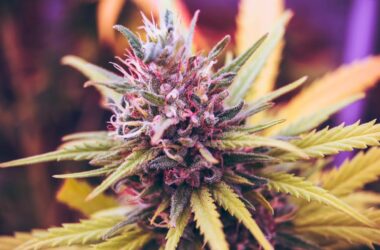Cannabidiol is a phytocannabinoid derived from hemp and is a popular dietary supplement. It is believed to reduce the craving for tobacco and heroin and may help prevent cancer. However, the World Health Organization (WHO) has not yet approved it for medical use.
Cannabidiol is a phytocannabinoid
Cannabidiol is one of the many compounds found in cannabis plants. It accounts for about 40 percent of the plant’s total extract. It can help with a number of different problems. It is an excellent natural remedy and has many medicinal applications.
The development of topical cannabinoid products is important due to its potential to treat various conditions. Topical formulations containing cannabinoids are generally well tolerated and show promising results in inflammatory skin conditions. However, controlled human clinical trials are still needed to fully understand their therapeutic potential and identify possible side effects.
Phytocannabinoids such as cannabidiol are used as treatments for a wide range of medical conditions. For instance, cannabidiol is a good option for multiple sclerosis patients because it helps ease pain. However, cannabidiol can interact with other medicines, so you must consult a doctor if you plan to take this type of medicine.
Cannabidiol has anti-inflammatory properties and has psychoactive effects. It is a strong appetite suppressant, a muscle relaxant, an analgesic, and a sedative. It can also impair recent memory.
Cannabidiol gummies are a great option for patients with anxiety disorders and other health conditions. They are packed with antioxidants, omega-3 fatty acids, fiber, protein, and calcium. Phytocannabinoid gummies can help treat depression and anxiety disorders.
It is a dietary supplement
There are many medical conditions that can be helped with cannabidiol. However, the key to success with this dietary supplement is how you take it. To avoid serious side effects, use it in moderation. There are a variety of ways to consume cannabidiol, including isolate powder and edibles.
Cannabidiol has been found to be effective in treating pain in some individuals with fibromyalgia. The disorder is characterized by widespread pain throughout the body, which does not respond to opioid or over-the-counter drugs. Fibromyalgia is a condition in which the central nervous system is dysfunctional, and its symptoms mimic those of rheumatoid arthritis, multiple sclerosis, depression, and lupus.
It inhibits cancer cell invasiveness and metastasis
Cannabinoids inhibit cancer cell invasion by increasing tissue inhibitor of matrix metalloproteinases-1 (TIMP-1), an enzyme that is critical for cancer metastasis. Researchers have linked increased TIMP-1 expression to decreased tumor growth, invasiveness, and metastasis.
The study showed that THC and CBD inhibit the growth of Lewis lung carcinoma. The researchers found that the cannabinoids inhibit tumour growth through different signal transduction pathways. This suggests that they may have therapeutic potential for cancer patients. Although more studies are needed to confirm this claim, it seems clear that cannabis-derived cannabinoids are capable of inhibiting the growth of cancer cells.
The researchers found that THC and CBD inhibited cancer cell metastasis and invasion by modulating the immune system in mice. These compounds inhibit the tumour-associated antigen ICAM-1 and PAK-1, which are important for the immune system. In addition, these cannabinoids inhibit cancer cell growth by inhibiting the activity of monoacyl phospholipid synthesis, thereby inhibiting metastasis.
Another recent study found that cannabinoids inhibit cancer cell invasion and metastasis. They inhibit the cell cycle and induce apoptosis. These results suggest that cannabinoids are novel therapeutic targets for melanoma.
Studies have found that cannabinoids inhibit tumour neovascularisation in a mouse model and human xenografts. They also inhibit tumour-stroma interactions. Moreover, cannabinoids inhibit tumour invasion by inhibiting the expression of proangiogenic proteins and reducing tumour-stroma interactions.
These results also suggest that THC inhibits the activity of MMP-2 in glioma and HCC cells. A synthetic cannabinoid, WIN 55,212-2, inhibits the activity of MMP-2 and MMP-9, while upregulating miR-29b1, a transcription factor involved in regulating MMP-2 and -9 expression. The antimigratory effect of cannabinoids has also been shown in HCC cells.
Cannabinoids inhibit tumour metastasis through an indirect effect on endothelial cells. Cannabinoids inhibit the activity of VEGF and inhibit the secretome of cancer cells. In one study, THC-treated lung cancer cells showed an inhibitory effect on the proliferation of endothelial cells and decreased levels of leptin, thrombopoietin, and thrombopoietin. Furthermore, THC-treated lung cancer cells showed a reduced ability to invade and migrate.
In a recent study, a cannabis-based medication was effective in treating refractory cancer-induced nausea and vomiting (N/V). In the study, cannabis-based medicines were found to have an antiemetic effect comparable to prochlorperazine. However, it is important to note that this study is not a final, definitive scientific statement.
It may reduce cravings for tobacco and heroin
The study found that a substance called cannabidiol may reduce cravings of tobacco and heroin. The drug, which is derived from hemp, is a nonpsychoactive ingredient that can be found in marijuana. Its effects were seen in a group of participants who were abstinent for one week. During the abstinence period, the participants completed state questionnaires and cardiovascular measures. The participants were then given an orally administered dose of CBD. After receiving the drug, they completed the visual probe and PRT. At 200 minutes, they completed a craving and withdrawal assessment.
The study found that cannabidiol (CBD) helped heroin addicts reduce cravings by reducing the anxiety and cues that trigger drug cravings. The results were consistent for up to a week, suggesting that CBD may help break the addiction cycle. It also reduced physiological stress reactivity, a condition triggered by drug cues.
Cannabidiol, a nonpsychoactive ingredient found in hemp, has been shown to decrease cravings for heroin and reduce anxiety in patients. Although other prescription opioid addiction medications act in a similar manner, cannabidiol has not been widely used for this purpose. In the US, only one-third of drug addicts receive medications to combat their addiction. But according to the surgeon general, one in five people are in need of treatment.
One study in which 30 smokers were given CBD pills 12 hours after they’d quit smoking. Participants showed reduced attentional bias toward images related to smoking and rated them as less enjoyable than the non-cannabidiol group. This bias is a hallmark of addiction and can predict relapse even after abstinence. The authors of this study suggest that this cognitive bias is a causal factor in maintaining addiction.
The study also showed that an 800-mg dose of cannabidiol reduced the salience and pleasantness of cigarette cues. However, it failed to reduce the level of withdrawal or tobacco cravings. Despite these findings, it’s important to note that there are still limitations to the study.
Find out how CBD can help people with THC Addiction : https://www.cbdtherapydelivery.it/come-smettere-di-fumare-canne-dopo-anni/













